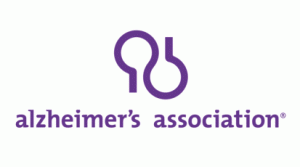Alzheimer’s Association Bets on Non-Drug Therapy Research with New Grants
Written by |

 The Alzheimer’s Association is awarding a new series of grants to support research on non-drug therapies for the treatment of Alzheimer’s disease as a way of advancing the search for a cure for the condition and meeting the needs of projects that are not funded either by the government or pharmaceutical companies. The Alzheimer’s Association International Research Grant Program (IRGP) is supporting 42 projects, including three for non-drug therapies and 15 for fields identified as in critical need of more research.
The Alzheimer’s Association is awarding a new series of grants to support research on non-drug therapies for the treatment of Alzheimer’s disease as a way of advancing the search for a cure for the condition and meeting the needs of projects that are not funded either by the government or pharmaceutical companies. The Alzheimer’s Association International Research Grant Program (IRGP) is supporting 42 projects, including three for non-drug therapies and 15 for fields identified as in critical need of more research.
The new grants awarded three research projects from the University of California in San Diego, the Joslin Diabetes Center in Boston, and the University of Oklahoma Health Sciences, who are working on non-drug therapies, under the conviction that these kinds of treatments currently being researched may offer a new opportunity to improve Alzheimer’s patients’ quality of life. Moreover, the association is sensitive to the fact that several recent late-stage drug trials were unproductive.
“The Alzheimer’s Association International Research Grant Program (IRGP) is at the heart of the association’s commitment to advancing Alzheimer’s research,” said the vice president of Medical and Scientific Relations for the Alzheimer’s Association, Maria Carrillo, Ph.D. “We aim to ensure that, as much as is possible with the available funds, all promising research paths are being pursued.”
Amy Jak, PhD, from the University of California, has been granted $246,978 for three years to fund a 12-week intervention, comprised of either exercise or cognitive stimulation, or a combination of the two in older patients, to assess its effectiveness in the decrease of the risk of suffering cognitive impairment or dementia.
The University of Oklahoma Health Sciences was also awarded a $99,967 grant over two years for the study being conducted by Carrie Ciro, Ph.D., on the improvement of quotidian skills. The researcher is leading a Skill-Building study, using Task-Oriented Motor Practice (STOMP), as a way of not only improving quotidian skills, but also delaying the decline of the skills in dementia patients. STOMP is based on repetitive therapy and a learning technique aimed to correct the steps and preserve the memory.
“These three grants in particular help advance a vision for a future where non-pharmacological interventions will be available and may be used hand-in-hand with drug therapies to prevent and treat Alzheimer’s disease. This approach is effective in other deadly diseases, including heart disease and cancer,” Carrillo added.
 In addition, from the total of 42 grants from the United States, Canada, Italy, France, the United Kingdom, and Australia, the Alzheimer’s Association also attributed grants to 15 scientific projects, which are working on fields that had been identified as in critical need of more research. These fields include the understanding on the impacts of heart diseases and diabetes in the risk of developing Alzheimer’s and dementia, genetics of the risk of Alzheimer’s, the discovery and validation of new drug targets for the treatment of the disease, and discovering non-drug therapeutics for Alzheimer’s patients.
In addition, from the total of 42 grants from the United States, Canada, Italy, France, the United Kingdom, and Australia, the Alzheimer’s Association also attributed grants to 15 scientific projects, which are working on fields that had been identified as in critical need of more research. These fields include the understanding on the impacts of heart diseases and diabetes in the risk of developing Alzheimer’s and dementia, genetics of the risk of Alzheimer’s, the discovery and validation of new drug targets for the treatment of the disease, and discovering non-drug therapeutics for Alzheimer’s patients.
The new approach to funding taken by the Alzheimer’s Association is based on the results of a clinical trial conducted during two years, whose results were presented at the Alzheimer’s Association International Conference, last July, suggesting that combining lifestyle alterations may provide benefits in the overall health aging, as well as may help preventing cognitive impairment. The Finnish Geriatric Intervention Study to Prevent Cognitive Impairment and Disability (FINGER Study), led by Miia Kivipelto, M.D., Ph.D., at the University of Kuopio, Finland, was part of a great research funding effort from the Alzheimer’s Association.
The FINGER study enrolled 1,260 adults between 60 and 77 years old, which were separated in two groups, and while one received nutritional guidance, physical exercise, cognitive training, social activities and management of heart health risk factors, the other was only given regular health advice. Two years later, the group who received the intervention revealed significantly better results on a comprehensive scale of memory and thinking, and on specific tests of memory and executive function, which included planning, judgment and problem-solving, compared to the control group.
The Alzheimer’s Association is the largest non-profit founder of research on Alzheimer’s and dementia worldwide, and has granted almost $14 million to 88 scientific projects in 2014 alone, including these 42 investigations. At the beginning of the month, the association awarded Jose Abisambra, assistant professor at the University of Kentucky and researcher at the Sanders-Brown Center on Aging, with their $100,000 New Investigator Research Grant, to support his research on the function of a brain protein that suffers a mutation during the development of Alzheimer’s.





